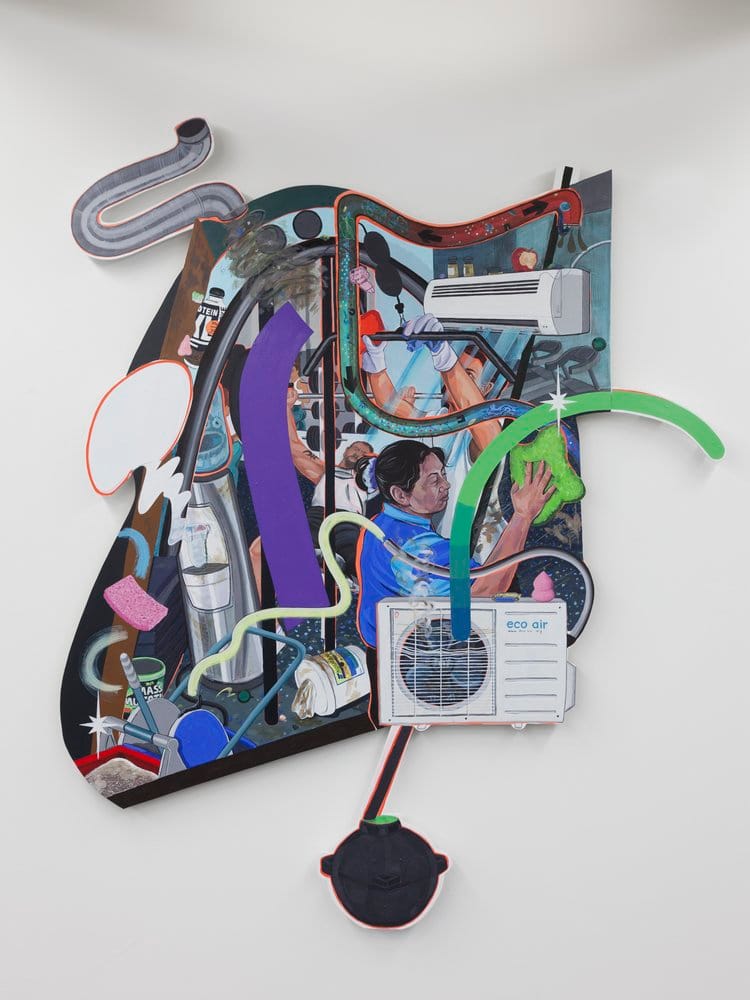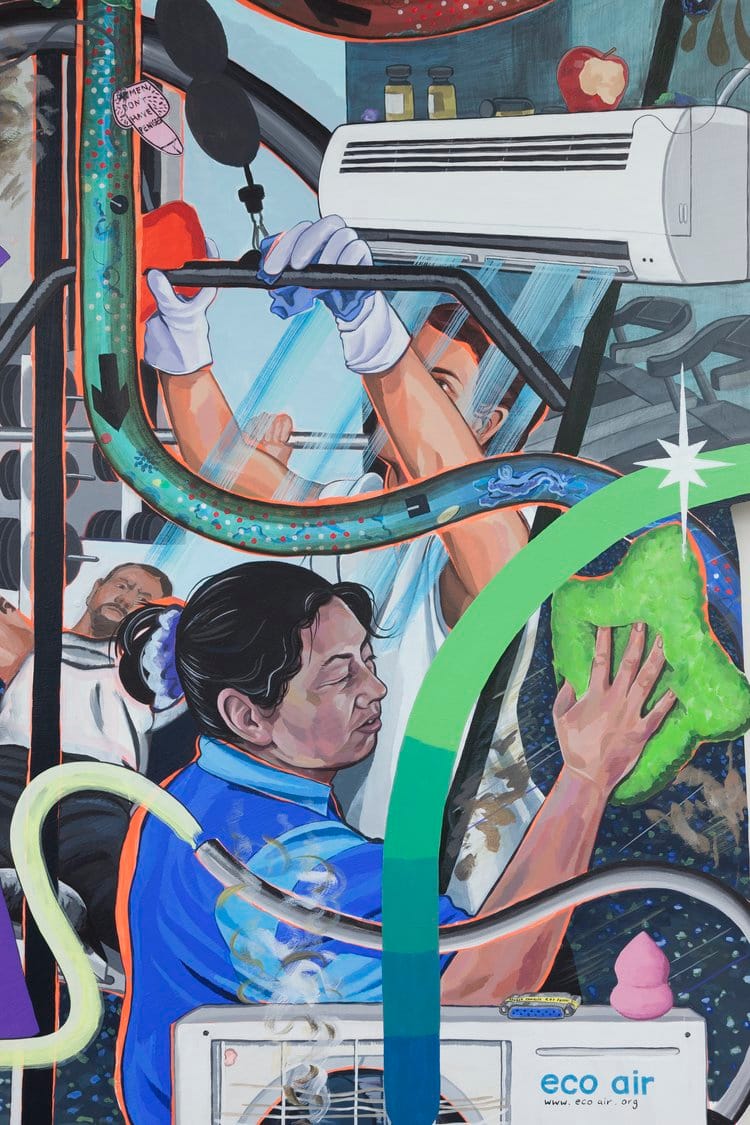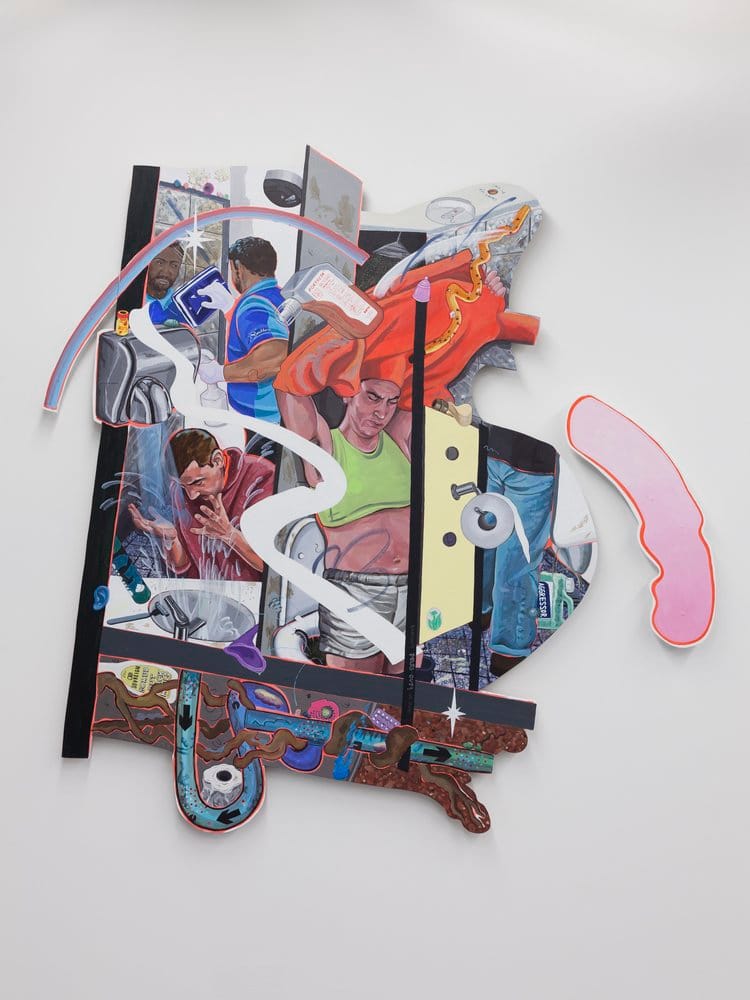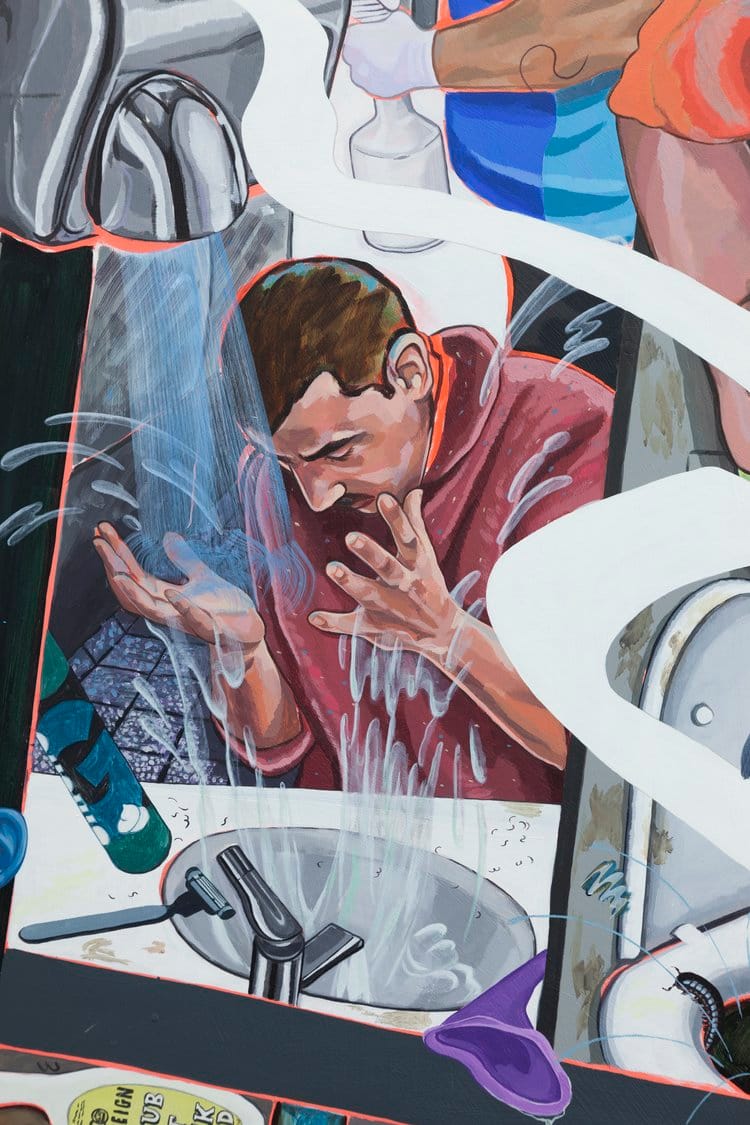Flo Brooks is a transgender painter who reflects on their experience in colourful cut-out boards that function as canvases. In one of their earlier painting series, Scrubbers, they’ve created an imaginary cleaning company that is working in a public toilet, gym, psychotherapist’s office and more. The cleaners in these companies are interrupted by opening hours, patients and much more.

Reflecting on Brook’s own experiences as a trans artist, these Scrubbers are symbols of people who do not fit into societal norms, a representation of people who are constantly trying to “clean” themselves and their surroundings to fit in. The pieces are also social commentary on how sanitation work often goes unappreciated, a task that is only deemed “essential” during emergencies. This is why Scrubbers by Flo Brooks is aligned with the United Nations Sustainable Development Goal of Gender Equality, Clean Water and Sanitation and Decent Work And Economic Growth.

The flowing lines in Brook’s artworks make them appear as if they are in a constant state of flux, constantly transforming and never quite taking a single form. When asked to explain this, Brooks shared: “A couple years back I overheard a primary school teacher tell two kids at an exhibition of some of my paintings that “they’re thoughts” when the kids asked what the “floating bits” were surrounding the figures in the images.”

Then, in an interview with Elephant Art, Brooks stated that their decision to depict sanitation workers in their piece came from their personal experience of visiting hygienic spaces such as planned parenthood and psychiatric hospitals. Brooks was there to undergo hormone transition and receive mental health support when they pondered how these spaces are constantly cleaned, an act which began for hygiene reasons and later can be interpreted as a way to erase traces of the people whose “problems” pushed them to visit these spaces. It was as if social norms were still being pushed onto people who were already actively trying to break out of them.

At the same time, these “clean” spaces were also erasing any traces its cleaners made. In the United States, cleaners are typically paid below minimum wage at USD 12 per hour, when the average blue-collar worker is paid USD 20 per hour. Hence, the Economic Policy Institute concluded that domestic workers are three times more likely to be living in poverty when compared to other workers. Here Scrubbers by Flo Brooks brings the plights of these domestic workers and cleaners to the forefront, asking why it is that such an essential job is still compensated so inadequately.
Flo Brooks' Scrubbers series powerfully critiques societal norms and highlights the often-overlooked labor of sanitation workers, drawing parallels between their experiences and the struggles of marginalized individuals, particularly in the trans community. Through vibrant, constantly shifting compositions, Brooks challenges viewers to confront the privileges enjoyed by the cis-genders and the invisibility of those who maintain the cleanliness of spaces that society deems essential. By bringing attention to these essential yet underappreciated workers, Brooks emphasizes the need for greater recognition, fair compensation, and respect for those whose work is crucial to our everyday lives.
Find out more about Scrubbers and other pieces by Flo Brooks on www.flobrooks.com.
